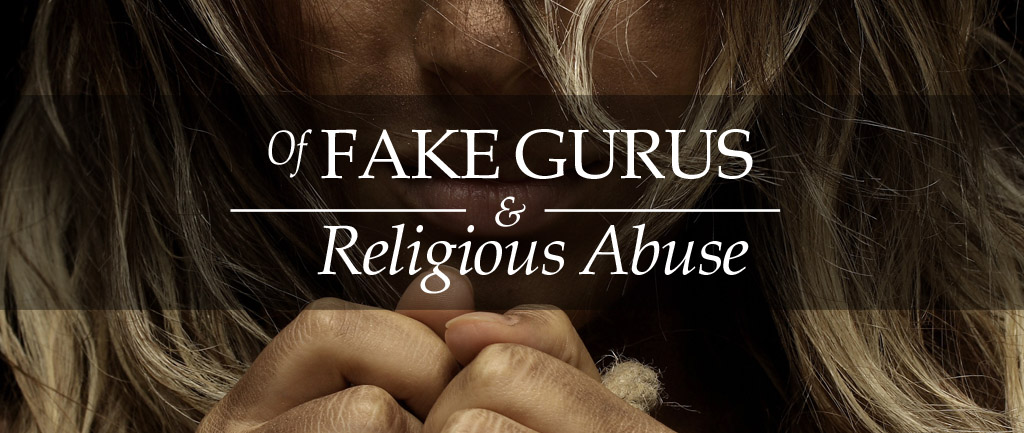 The spiritual path is not without its pitfalls, and one of the easiest stumbles to make is to over-rely on an external teacher. This assertion itself may raise hackles among those who have been raised to respect and never contradict authorities, but the fact is, such conditioning has always served to undermine our own discernment and power, and to give that power to someone else.
The spiritual path is not without its pitfalls, and one of the easiest stumbles to make is to over-rely on an external teacher. This assertion itself may raise hackles among those who have been raised to respect and never contradict authorities, but the fact is, such conditioning has always served to undermine our own discernment and power, and to give that power to someone else.
Authoritarian parenting and government styles have much in common: They produce adults that are less resourceful, less socially-adept, and more likely to become involved in bullying—both as victims and perpetrators. The children of authoritarian parents are at greater risk of anxiety, low self-esteem, and depression; and actually lag behind when it comes to self-regulation and moral reasoning. (References at the link.)
I emphasize this again: Children brought up by strict and controlling parents are more anxious, less self-resourceful, more likely to bully or be bullied, and more likely to get suckered by shows of force and illogical moral reasoning.
Researchers have found that authoritarianism feeds into (immature) religiosity and vice versa. Religious Trauma Syndrome describes the trauma that results from immersion in a controlling religion and the secondary impact of leaving a religious group, including warped mindsets and views of reality, as well as adversely impacted intellectual and emotional development.
Fear, shame or guilt; Paternalistic religions do not shy from wielding these powerful emotional tools for control over their flock. Those who dare to question one’s religious leaders or the exalted dogma are often threatened that they’re placing themselves, their soul, and their entire system of social support into jeopardy.
It is within this context I recognise why it’s hard to challenge the views of those who have grown up obedient, unquestioning and conditioned—in a word, “brainwashed”. For some, asking questions and taking responsibility for their own values, beliefs, and spiritual path is terrifying at an existential level.
Recent Fallout
I’ve chosen to blog this at a time of watching various religious and spiritual institutions fall: The Catholic Church has long been known for its sexual abuse of young boys by its clergy, but this year, Pope Francis confirmed the sexual abuse of nuns as well. Within the same church, Australia’s homophobic Cardinal Pell has just been convicted of child sexual abuse. Late 2018, Brazilian faith healer John of God was convicted of rape and sexual assault. In September 2018, the Guardian reported the (trigger warning: rape) sexual assaults and rape allegations against the guru behind Agama Yoga school in Thailand. In April 2018, Netflix released their 6-part documentary, Wild Wild Country, about the community built around Bhagwan Shree Rajneesh, better known as Osho (and here, psychologist Louis Manza analyses how cult leaders control their followers). This list is not exhaustive.
Within the New Age community in 2017, Doreen Virtue posted a video literally demonising her previous work for Hay House, calling oracle cards and New Age beliefs tools of the devil. That video was deleted following a massive backlash (and possible censure from Hay House). She then published an article (deliberately not linked) in January 2019 titled “An A-Z List of New Age Practices to Avoid, and Why,” which was less vitriolic but still full of projection and condemnation. (I heartily recommend Benebell Wen’s ripping take on it. Kelly-Ann Maddox also had a good video response that raised the point of how Christian conversion videos hurt victims of religious trauma.)
The Need to Believe in Something
Louis Manza and Benebell Wen, among others, highlight the human psychological need to believe in something. What we believe frequently is a result of choice, and there’s evidence to show that experiencing authoritarian parenting predisposes one to authoritarian and paternalistic religions, governing styles, and/or unquestioning cult-like behavior. It is the conditioned habit of trusting external authority to the detriment, or even voluntary surrender, of one’s own judgment and self-determination. If we were never trusted to practice and follow our own discernment and judgment, there’s a relief in continuing to hand over our autonomy in the realm of spirituality. We can too easily trust someone who presents as an expert, or better yet, enlightened.
So as much as I’ve listed the spiritual institutions that have lately fallen, I’m just as interested in emphasizing that these institutions have been propped up by authoritarian conditioning and millions of unquestioning followers for far too long. It takes two hands to clap, and it may be more productive to encourage self-searching and self-trust on the spiritual path, rather than for perfect gurus to lead us to salvation, ascension, or [insert your flavor of spiritual jargon here].
We need to stop celebrating blind obedience and mindless credulity. It is utterly disempowering.
If we were raised with the distorted thinking that we must please everyone (or someone else’s idea of God) all the time, that there is a “correct and true” religion that exists, and that all other beliefs are tricks to lead us to hell (fear and shame as tools of manipulation again), the thought of a self-directed search for meaning or belief is paralyzing. And it is unfortunately here that I think most people brought up in authoritarian systems are stuck.
Fear and shame can be devastating and toxic in the long term, warping our emotional coping mechanisms and outlook on life. Many are caught in the mindset that an expert is always needed between them and whatever higher power they want to believe in, when that divine connection can be direct and personal.
It can be frustrating to converse with individuals deathly afraid of making the wrong move—reading the “wrong” thing, believing the wrong thing, picking the wrong religion, modality, guru, or advice; when the real heart of the question should be about why they assume they must give their power 100% away to anything they read, watch, listen to, or follow.
Books can be shut. Videos and podcasts can be paused. Channels can be changed. Browser tabs can be closed. Ideas can (and should) be tested. Friendships, journeys, even thought patterns, can end to make way for new ones.
No one should ever place an external authority, forever and always, over their own feelings, discernment and judgment. Run like hell from anyone who offers to make those decisions on what you should read, hear, watch, and believe in your own life.
So question authority. Read the Kalama Sutta. (Or don’t, you don’t have to do what I say.) Become aware of your conditioning, and rewrite it. Heal your traumas, whether from psychological abuse or enmeshment.
Reclaim what you believe in and make your choices on what is right for you.
If you don’t know what that is, that’s a big sign to work on self-awareness, self-knowledge, and self-trust. It may mean finding yourself, making some mistakes along the way, and forgiving yourself for them.
If you’re placing anything or anyone on a pedestal above you, be wary. And assert your “no” if anyone asks you to do something against your free will and better judgment. This way, fake gurus and the continued exposure of more fake gurus will hardly shake you. It’s the best protection from religious abuse (and any abuse) that I can think of.
